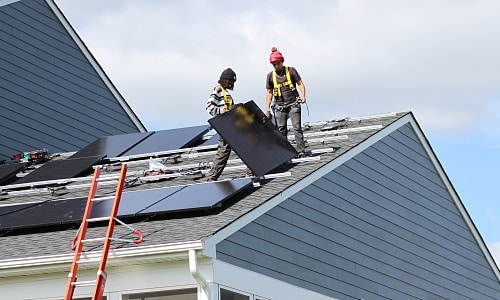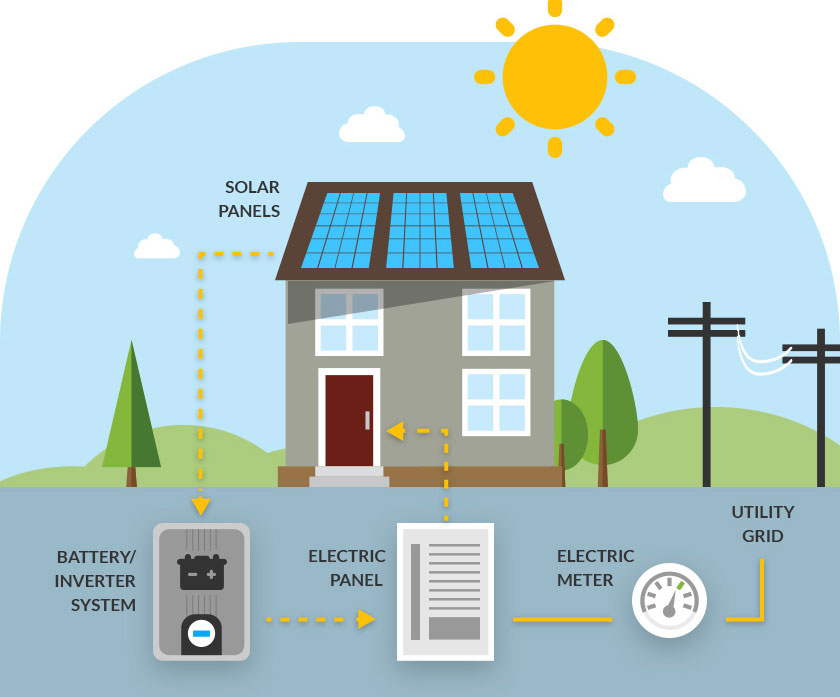Solar Panel Company Can Be Fun For Anyone
Solar Panel Company Can Be Fun For Anyone
Blog Article
Solar Panel Financing Virginia: Lumina Solar Focuses On Supplying Advanced Photovoltaic Solutions For Homes And Businesses
History and Founding
Have you ever wondered how a photovoltaic panel company springs from a simple stimulate of motivation into a powerhouse of renewable resource? It typically starts with a vision-- one sustained by a blend of innovation, decision, and a pinch of serendipity. The journey of many solar companies mirrors the evolution of the technology itself: from large, ineffective panels to streamlined, high-efficiency marvels harnessing the sun's bounty.
The Early Days
In the late 20th century, when solar power was still a click here niche idea, pioneers planted seeds for what would end up being a worldwide motion. Imagine a little workshop filled with curious engineers, relentlessly explore photovoltaic cells. Their enthusiasm was palpable, typically driven by a desire to combat environment change and decrease dependence on fossil fuels.
One such anecdote has to do with a creator who, influenced by a camping journey, recognized that even in remote locations, the sun might power important devices. This easy observation stimulated a company's mission to equalize access to clean energy.
Founding Concepts

- Innovation: Continuously pushing the borders of solar innovation to enhance performance and toughness.
- Sustainability: Dedicating to environment-friendly manufacturing and minimizing carbon footprints.
- Accessibility: Making renewable resource solutions economical and practical for daily users.
Milestones in Growth
| Year | Key Occasion |
|---|---|
| 1985 | Company established in a little garage, concentrating on research study and development. |
| 1995 | Industrial solar panel product introduced, getting local attention. |
| 2005 | Broadened to global markets, welcoming global renewable energy goals. |
| 2015 | Introduced cutting-edge photovoltaic panel innovation with improved energy conversion. |
Isn't it fascinating how these incremental steps, typically overlooked, shape the energy landscape today? The photovoltaic panel company story is not just about innovation; it's about an unrelenting quest for a brighter, cleaner future.

Developments in Solar Panel Technologies
Ever seen how some solar panels shine brighter and last longer? It's not magic; it's the science of photovoltaic performance. Modern photovoltaic panel companies invest greatly in technologies like bifacial cells, which record sunshine from both sides, boosting energy harvest without broadening roofing system area. Have you ever wondered why some panels carry out better on cloudy days? That's due to advances in thin-film solar technology, which grows under diffused light conditions.
Product Variations Tailored to Distinct Needs
One size never ever fits all. Solar panel companies now offer:
- Monocrystalline panels for maximum performance and streamlined looks, perfect for space-constrained rooftops.
- Polycrystalline panels, which offer a cost-effective alternative without sacrificing too much output.
- Building-integrated photovoltaics (BIPV), merging solar tech effortlessly into architectural aspects like windows and exteriors.
Selecting the best product isn't practically upfront expense; it's about matching your environment, energy objectives, and long-term savings. For instance, homes shaded by trees need panels that excel in low-light scenarios, something lots of neglect till energy expenses climb all of a sudden.
Technical Tips for Optimum Selection
- Assess the temperature coefficient-- lower values imply panels lose less effectiveness on hot days.
- Search for panels with improved anti-reflective coatings to optimize light absorption.
- Consider the panel's service warranty not just for defects, however for ensured power output over years.
- Do not underestimate the value of the inverter technology coupled with the panels; it can make or break your system's efficiency.
Beyond Panels: Emerging Patterns
Picture solar panels that change their angle instantly to chase after the sun-- tracking systems are ending up being more accessible, increasing yield substantially. Or solar tiles that mix invisibly into your roofline, transforming your home into a silent, self-sufficient power generator. These innovations are reshaping what a photovoltaic panel business provides-- not just products, however incorporated energy services.
Market Presence and Global Operations
Ever wonder why some photovoltaic panel business seem to sprout up in every corner of the world while others hardly make a ripple? The difference lies not simply in technology however in mastering the art of navigating diverse markets. Expanding worldwide is like planting seeds in different environments-- you should understand each environment's distinct conditions to thrive.
Take, for instance, the elaborate dance of logistics and supply chain management. Shipping panels halfway across the world isn't practically range; it has to do with timing, customizeds, tariffs, and adjusting to regional demand fluctuations. A business with robust global operations prepares for these variables, making sure panels arrive on schedule without inflating costs. This insight is no small feat and often separates industry leaders from fans.
Secret Techniques for Expanding Market Existence
- Localized production: Establishing production hubs near target audience reduces shipping hold-ups and import complexities.
- Strategic partnerships: Teaming up with regional firms accelerates market penetration and constructs trust.
- Adaptive item design: Customizing solar panel tech to weather, sun intensity, and facilities subtleties improves performance and acceptance.
What about the human factor? Photovoltaic panel companies running worldwide should fix up cultural distinctions and regulatory nuances without losing sight of their core mission. What works in a sun-drenched desert may falter in a humid seaside region. In some cases, the most ingenious solution is merely listening-- absorbing local insights to refine technology and approach.
Experts frequently advise a phased rollout rather than a shotgun expansion. Why risk overextension when measured growth develops sustainable momentum? Scaling sensibly suggests balancing ambition with operational durability - Solar Panel Company Virginia. In the race for sustainable energy supremacy, patience can be as valuable as speed.
Ecological Impact and Sustainability Practices
When solar panels first emerged, numerous assumed they brought no environmental luggage. The truth is more nuanced. The production of photovoltaic cells involves rare earth metals and energy-intensive processes, which can leave a substantial carbon footprint before the panels even reach roofs. The true ecological expense depends greatly on the sustainability practices used by the solar panel business throughout the lifecycle of their products.
How typically do we pause to consider what occurs to solar panels at the end of their helpful life? Unlike batteries or electronic devices, solar panels can last 25-30 years, however disposal and recycling paths remain underdeveloped in numerous areas. A business devoted to reducing ecological damage will have a robust plan for recycling photovoltaic products, salvaging valuable silicon, glass, and metals to prevent garbage dump accumulation.
Key Sustainability Techniques
- Utilizing low-impact production strategies that minimize water and energy consumption.
- Carrying out closed-loop systems to recycle production waste back into brand-new panels.
- Taking part in transparent supply chain audits to make sure ethical sourcing of raw materials.
- Designing panels for much easier disassembly to help future recycling efforts.
It deserves noting that some solar companies have actually originated ingenious approaches, such as incorporating eco-friendly components or utilizing less toxic chemicals during fabrication. This not only decreases environmental pressure however likewise sets a precedent for the industry. The concern stays: can the solar industry genuinely pivot towards a circular economy model without sacrificing effectiveness or affordability?
Expert Tips for Examining Sustainability
- Inquire about the company's commitment to carbon-neutral production and whether they balance out emissions.
- Examine if they partner with accredited recycling centers committed to solar panel waste.
- Look for transparency reports detailing ecological effects and sustainability goals.
- Think about the durability and guarantee of panels as an indirect measure of resource effectiveness.
In the end, going with solar energy should mean more than simply slashing electricity expenses; it has to do with supporting a future where energy is harvested properly and waste is attentively handled. Solar panel business that accept this approach not just brighten homes but likewise cast a brighter light on sustainable innovation.
Report this page